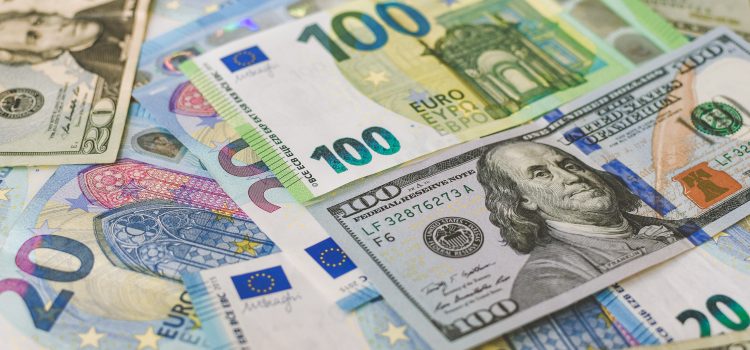
Promises are easy to make, but harder to keep. However, when the CEO of Vedanta Resources declares his company will achieve a zero-debt status by next year, it’s hard not to pay attention. The question on everyone’s mind is whether or not Anil Agarwal can deliver on this ambitious goal. With the global economy in flux and the mining industry facing unprecedented challenges, we take a closer look at the factors driving this pledge and what it could mean for Vedanta’s future.”
Who is Vedanta Chief Agarwal?
Vedanta Chief Agarwal is the chairman and managing director of Vedanta Limited, an Indian conglomerate with interests in zinc, lead, silver, copper, oil & gas, iron ore, power and steel. He is also the founder of Sterlite Industries, which was acquired by Vedanta in 2013.
Agarwal has been a driving force behind Vedanta’s growth and expansion into new markets and sectors. Under his leadership, Vedanta has become one of the largest diversified natural resources companies in the world.
In recent years, Agarwal has been focused on reducing Vedanta’s debt levels and making the company financially stronger. He has pledged to reduce Vedanta’s debt to zero by March 2021. This is a tall order, but if anyone can do it, it’s Agarwal.
He is a self-made man who knows how to get things done. He is also a shrewd businessman who knows how to make money. If anyone can deliver on his promise of reducing Vedanta’s debt to zero, it’s Agarwal.
What is Vedanta’s Zero Debt Promise?
The Vedanta Group has been on a mission to reduce its debt burden and improve its financial health for the past few years. In FY19, the company’s net debt stood at Rs 1,17,600 crore ($16.6 billion). This was after the group hived off its power business into a separate entity, Adani Power, and raised $2.6 billion from the sale of shares in its oil and gas business to UK-based BP plc.
In FY20, Vedanta’s net debt further came down to Rs 1,02,700 crore ($14.1 billion) following the sale of its entire stake in Cairn India to Resources Global Professionals (RGP), an affiliate of Apollo Global Management for $1.25 billion.
With these two transactions, the group has achieved close to 50% of its targetto bring down net debt to zero by FY21.
But can Vedanta Chief Executive Officer (CEO) Srinivasan Venkatakrishnan (Venkat) deliver on his promise of making the group a zero-debt company by FY21? That looks difficult given the current market conditions and the Covid-19 pandemic which has hit global economies hard.
Can Vedanta Chief Agarwal Deliver on His Zero Debt Promise?
Agarwal has been quoted as saying that he wants to make Vedanta a zero debt company within the next two to three years. This is an ambitious goal, considering that Vedanta had net debt of Rs 79,715 crore as of March 31, 2019.
Agarwal has said that he plans to achieve this by monetising non-core assets and using the proceeds to pay down debt. He has also said that he will look at raising equity from shareholders if needed.
Critics have raised doubts about Agarwal’s ability to deliver on his promise, given the current state of Vedanta’s balance sheet. They point out that the company’s share price has been under pressure in recent months and its market capitalisation is currently below Rs 60,000 crore. This makes it difficult for the company to raise equity from shareholders.
They also note that Vedanta’s core businesses – oil & gas, metals & mining – are facing challenging times. Oil & gas prices are volatile and the global economy is slowing down, which will impact demand for metals & mining products. This could put pressure on Vedanta’s cash flows and make it difficult to reduce debt levels.
However, Agarwal is confident that he can deliver on his promise. He points out that the company has already started taking steps to reduce debt levels. For example, it sold its power business in India for Rs 16,500 crore in April 2019 and used the proceeds to pay down debt
How would Vedanta’s Zero Debt Promise impact the company?
In September 2018, Anil Agarwal, the billionaire chairman of Vedanta Resources, made a bold promise to investors: he would eliminate all of the company’s debt within 18 months. Given that Vedanta’s net debt at the time was $5.3 billion, this was no small feat.
So far, Agarwal has made good on his promise. In March 2019, Vedanta announced that it had reduced its debt by $2.5 billion through a combination of asset sales and cost-cutting measures. If the company can continue to make progress at this rate, it will be well on its way to achieving its goal of being completely debt-free by 2020.
There are several reasons why becoming a zero-debt company would be beneficial for Vedanta. First and foremost, it would improve the company’s financial flexibility and reduce its borrowing costs. Additionally, it would make Vedanta a more attractive investment proposition for potential shareholders and make it less vulnerable to economic downturns.
Of course, there are also risks associated with Agarwal’s ambitious plan. If Vedanta is unable to meet its targets, it could find itself in even deeper financial trouble. Moreover, some of the asset sales that have been used to pay down debt may have been done at fire-sale prices, which could hurt the company in the long run.
Only time will tell whether Agarwal’s gamble pays off or not. However, if he is successful
Conclusion
Vedanta Chief Agarwal’s aim to achieve zero debt within the next 18 months is an ambitious one. He has outlined a comprehensive plan that involves monetizing assets, reducing operating costs, and refinancing existing loans through strategic partnerships with banks or other financial institutions. While it remains to be seen if he can deliver on this promise, his commitment towards this goal and willingness to work with lenders is noteworthy. By taking these steps, Agarwal may be able to reduce Vedanta’s overall debt burden in the coming months and position the company for sustained success in the future.










